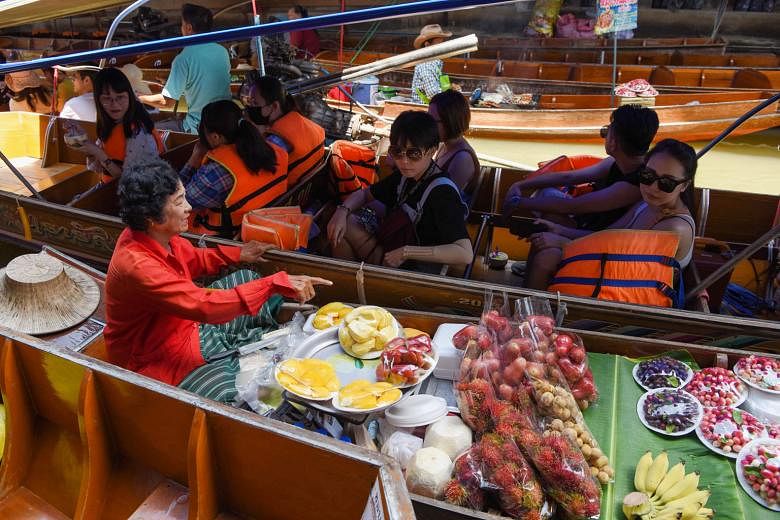BANGKOK • A strong baht and a slowdown in arrivals from China are battering Thailand's money-making tourism machine even as the country hopes to welcome a record 40 million visitors by the end of the year.
Most travellers to Thailand are from China and other countries in the region, but millions also come from Europe and the United States, and currency conversion rates impact their decisions when budgeting for trips.
"It absolutely has an effect, when (comparing) with other Asian country currencies, they would rather go to Vietnam, Malaysia, Singapore or Indonesia," said Mr Wichit Prakobgosol, president of the Association of Thai Travel Agents.
Before the baht strengthened, Chinese visits were already flagging after a boating disaster in Phuket last year killed dozens of mainland tourists.
Visits from China fell almost 5 per cent in the first six months of this year, compared with the same period last year, according to official statistics.
Past surges are also unlikely to repeat. Last year, total visits from all countries rose more than 7.5 per cent, compared with 2017. But after the first half of this year, the rise was only climbing towards 1.5 per cent.
Tourism and currency woes have weighed on economic growth, which slid to 2.3 per cent in the second quarter of this year - the lowest in almost five years.
US-China trade tensions have roiled markets, but Thailand has been less impacted than other countries in the region that have more exposure to global supply chains.
Solid fundamentals, such as healthy foreign exchange reserves and a current account surplus, have also helped the Thai unit.
Though popular sites are not as crowded as usual, Thailand is still a relatively inexpensive place with world-famous street food.
AGENCE FRANCE-PRESSE

